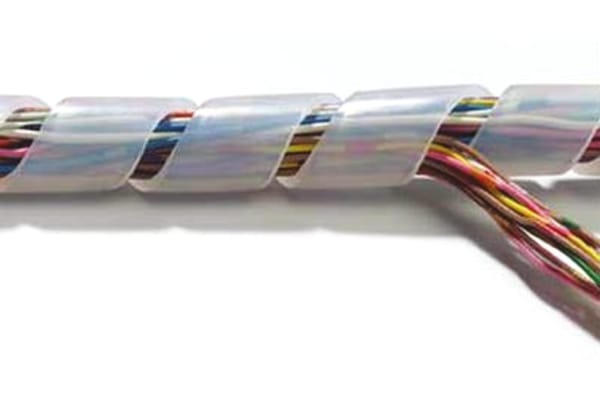Cable Spiral Wrapping
Cable spiral wrap is a type of expandable tube that conveniently and easily provides a way to protect and organise cables. Spiral wrap allows more access than other cable organisation products, such as trunking or conduits, as the wrapping can be easily unwound or can be expanded to create gaps, allowing for quick and easy visual inspection of the cables inside. Spiral wraps are available in a variety of lengths, diameters and thicknesses according to the cables it is used on and the environment it is used in. It is important to protect wires, cables, and hoses by keeping them organised, as it can increase a product’s lifespan and reduce the risk of user injury, such as accidental tripping.What is cable spiral wrap made from?Spiral wrap is available in many different materials, each of which is more suitable for different applications. The main uses for each material include:Polyethylene (PE) – lightweight and durable, polyethylene is a cost effective material, with flame retardant versions also available.Polypropylene (PP) – lightweight and flexible, polypropylene is also halogen free and self-extinguishing.Metal detectable PE – contains detectable metal additives to make particulates easily identifiable, which is why it is commonly used in food and beverage production to prevent contamination.Nylon – Nylon benefits from high chemical, impact, and thermal resistance, abrasion resistance and self-extinguishing properties.PTFE – commonly used in high-temperature applications due to having the widest operating temperature range.Features and BenefitsCable spiral wrap is quick and easy to use, allowing for the easy organisation of cables. The flexible and expandable design of spiral wrapping means that gaps can be created without cutting holes, allowing cables to be branched out at any point without damaging the wrap. This also means spiral wraps are easily reusable and can be transferred to new applications with ease when required.What is cable spiral wrap used for?Organising wires in office environments from computers to servers and other peripherals.Bundling hoses together in automotive applications.Preventing pets or pests chewing cables.



